Yeast and Mold Allergies
Yeast and mold belong to the Fungi family. Fungi are living cells that contain protein that can cause allergies or sensitivities. Fungi, in the air we breathe or the food we eat, constantly surround us.
Mold Allergies
The spores of mold fungi are common causes of inhalant allergy. Asthma or respiratory tract symptoms are often signs of mold allergy or exposure. Molds are commonly found in moist damp areas such as basements, trashcans, plant soil and woodpiles. Mold colonies are often seen growing on the surface of moist foods such as bread, cheese and jam.
We consume fungi from moldy foods or from the actual food manufacturing process. A range of different fungi is used in this process in a variety of ways, such as the making of cheese or fermented products. Yeast is used is the process of making wine or beer, vinegar and bakery products. Asthmatics who are sensitive to inhaled mold spores can experience urticaria (hives), angioedema (swelling) and cardiac symptoms after consuming substances containing yeast or mold.
If you are suspecting mold allergies or sensitivities, avoiding all exposure of mold may not be possible. However, you can reduce your risk by identifying problem molds through our serum blood test.
Alletess Medical Laboratory provides a Mold Elimination Plan, which is helpful in reducing your risk of reaction. Helpful tips such as cleaning up your environment and choosing your foods carefully will help alleviate symptoms. Avoid foods that are more likely to contain mold or other fungi, such as mushrooms or yeast.
Yeast Allergies
A yeast allergy may present itself as a yeast infection. They share many of the same symptoms. One difference is that after consuming yeast one becomes noticeably tired when presenting a yeast allergy. Symptoms vary person to person and may include abdominal swelling, joint pain, dizziness and difficulty breathing.
Candida is yeast that occurs naturally in the body and is present in the intestinal tract from birth. Candida normally resides along with bacterial flora which co-exist and its growth is normally limited by the immune system or other balanced bacteria. Excess stress, use of antibiotics, oral contraceptives, allergies and viral infections may exacerbate the growth of yeast.
Candida albicans is a dimorphic fungus. It grows in yeast form in a simple carbohydrate-rich environment. Other forms of Candida exist and have the same characteristics as Candida albicans. Usually they are harmless, yet this balance can be upset. Repeated imbalances of this sort can lead to chronic Candida sensitivity, which in turn can lead to numerous food and chemical sensitivities. The Candida Diet is available when ordering the Candida Profile test. The Candida Diet discusses the exclusion of foods that contain sugars and other carbohydrates such as simple starches. In addition, the sensitive person should avoid dietary forms of other fungi, which cross react with Candida and cause similar reactions.
Mold allergy and sensitivity is more prevalent due to our environment and other toxic exposures. People who suffer from allergies may be more sensitive to mold. Other susceptible populations may include asthmatics, children and infants, the elderly, or individuals with existing respiratory conditions or weakened immune systems. The Mold Elimination Plan, environmental management and sublingual immunotherapy have shown to be effective in alleviating symptoms.
Comprehensive Mold Panel Options
Mold Immunoreactivity Panel
- Alternaria alternata
Aspergillus fumigatus
Cladosporium herbarum
Fusarium proliferatum
Mucor racemosus
Penicillium chrysogenum
Stachybotrys atra
6 Mold Panel IgE & IgG
- Alternaria
Aspergillus
Candida
Cladosporium
Penicillium
Stemphylium
15 Mold Panel IgE & IgG
- Alternaria
Aspergillus
Aureobasidium
Candida
Chaetomium
Cladosporium
Epicoccum
Fusarium
Mucor
Penicillium
Phoma
Rhizopus
Affiliations
- ASAMI – American Society of Aesthetic Medicine & Intradermal Mesotherapy
- ACAM - American College for the Advancement in Medicine Link
- ASLMS – American Society for Laser Medicine and Surgery, Inc. Link
- AMMG - Age Management Medicine Group Link
- Fellow of American Academy of Anti-Aging Medicine Link
- Member of Institute of Functional Medicine Link
- Health Freedom Foundation Link
- Menopause Symptoms Blog Link
Clinic Hours
Monday - Friday 10 AM - 4 PM
Closed Saturday & Sunday


